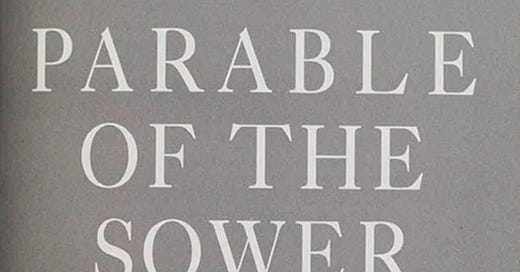The Novel That Tells You How To Survive America
Some thoughts on Octavia Butler's Parable of the Sower.
I rejoined X, formerly known as Twitter, with a new account after several attempts to reclaim my old account and log back in. I was away for about 9 months—I was logged out back in mid-October and unable to log back in due to problems with the two-factor log-in system that I have since discovered are widespread thanks to changes to the site internally. …
Keep reading with a 7-day free trial
Subscribe to The Querent to keep reading this post and get 7 days of free access to the full post archives.




